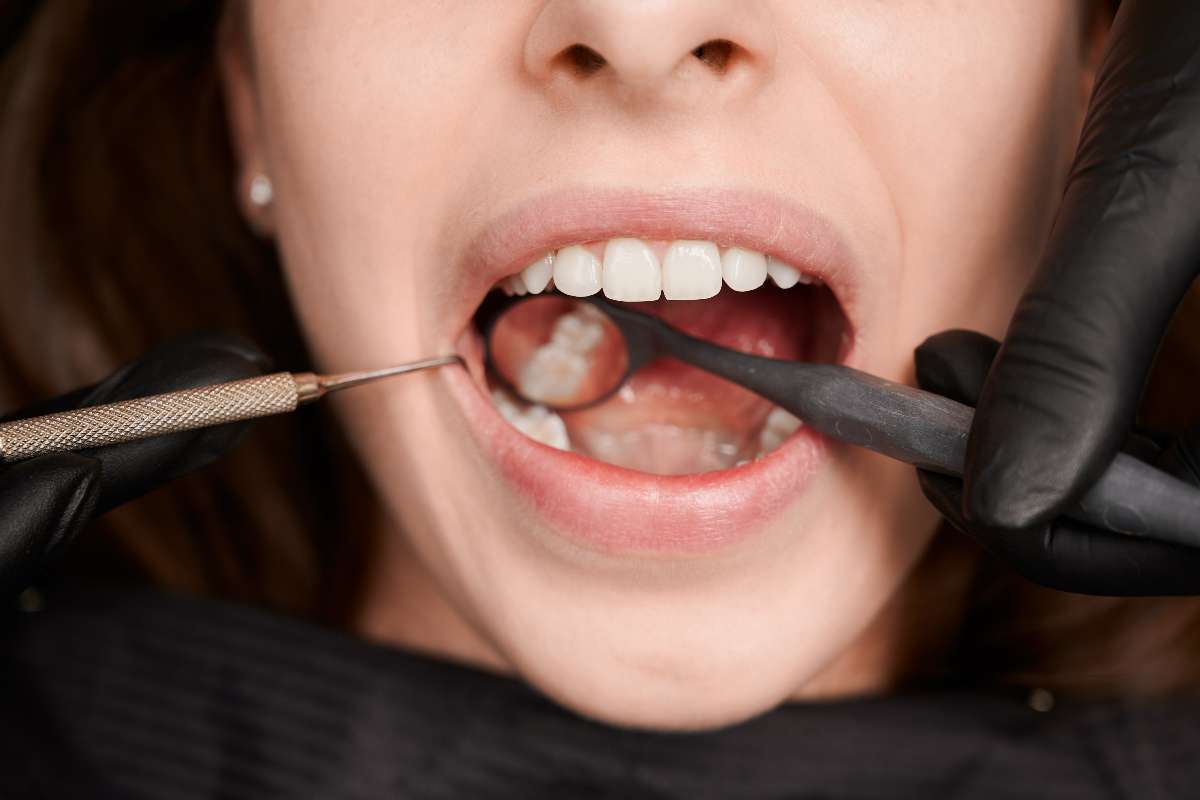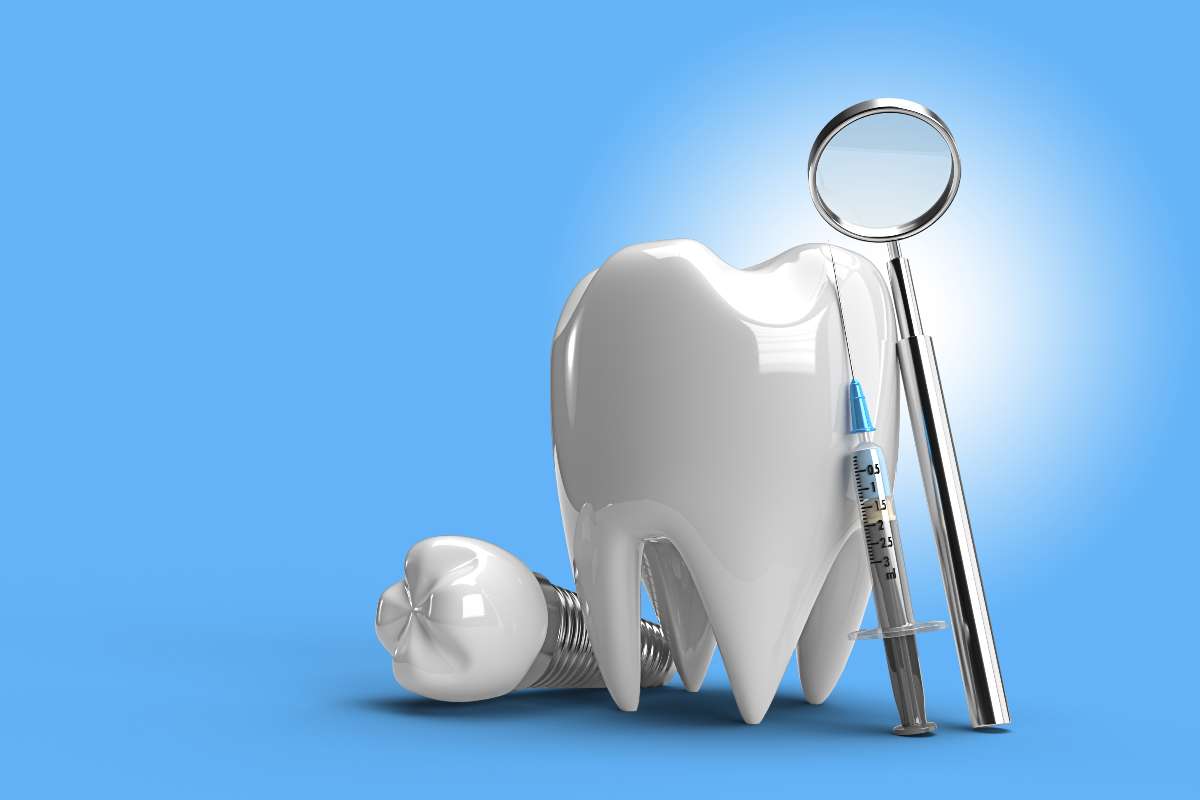
Cavities are known to deform the tooth with tiny holes and can damage it permanently when not treated timely. Also termed as caries or tooth decay. Plaque is one of the main reasons behind tooth cavities.
“A tooth cavity is denoted as the bacterial slippery layer over the tooth surface called plaque. If not treated early, it can lead to tooth pain and sensitivity.”
It is challenging to detect many cavities because sometimes the person can not feel any pain or discomfort, it does not grow in one day. It starts by affecting a small negligible portion and then increases its size gradually. Anyone from a child to an adult or older people can suffer from cavities, no matter how well you take care of your oral hygiene, still it can find its way. It is highly recommended to get it detected in the early stages so that it won’t affect the deep layer of the tooth and can be controlled.
Tooth decay and cavities are the world’s most common health problems, according to Mayo Clinic. Anyone with grown teeth can suffer from it even Little ones (infants).

Cavity symptoms may not appear in the very beginning but they become very evident as the decay affects the larger tooth area. Such possible symptoms are:


As we know, plaque causes tooth decay. Let’s understand the process clearly:
Plaque forms on the tooth surface when your mouth bacteria combine with the food (i.e. sugars and starch ) that you eat. It appears as a sticky or slippery bacterial layer on the tooth.
Step 2. Acid Production:
Bacterias that are present in plaque starts acid production which can erode the outermost protective layer of your teeth known as Enamel.
Step 3. Enamel Erosion:
The acid that is produced from plaque now erodes the Enamel by creating tiny holes or weak spots.
Step 4. Dentin Attack:
After enamel is destroyed, the produced acid’s next target is dentin. Dentin is the soft layer below the enamel.
Step 5. Cavity Formation:
Due to continuous acid exposure to the teeth, the cavity is formed i.e. holes in the teeth. It damages your tooth structure permanently.
Step 6. Spread of Decay:
The decay continues to spread deeper into the tooth, infecting the pulp. Pulp comprises nerves and blood vessels due to which infection caused here can be really painful.
Step 7. Toothache and Sensitivity:
On advancement in decay, toothaches and tooth sensitivity to cold, hot, or sweet foods increase.
Step 8. Infection and Abscess:
On pulp decay, infection is caused in the form of abscesses (pockets of pus) which is extremely painful.
Step 9. Tooth Loss:
If the decay is left untreated then the infection would result in the loss of a tooth.

Prevention is better than cure. One should always take careful prevention measures to keep that healthy smile forever:
Brush your teeth twice a day or after every meal with fluoride toothpaste. Fluoride is an essential element as it helps in tooth enamel strengthening and making it resistant to tooth decay by reducing the acid produced by bacteria.
Research proves that brushing your teeth regularly with fluoride toothpaste prevents tooth cavities.
If your doctor detects you at a cavity risk then you should rinse your mouth with fluoride as recommended by the Doctor. It will help you keep your mouth away from cavities.
Make a habit of having regular dental checkups so that any early-stage cavity would be caught. Prefer professional teeth cleaning and oral tests so that any minor issue would be treated or detected then and there only.
The Centers for Disease Control and Prevention (CDC), suggested that all school-going children should get sealants. It’s a great solution or a preventive measure as it could stay on the tooth surface for a longer period before replacement. However, still need regular checkups.
A sealant is a protective coating made of plastic that is used to cover the back teeth surface and mostly helps in chewing food. This helps cover those little spaces and cracks (grooves and crannies) where food can get stuck. Thus, avoiding acid formation leading to plaque formation.
Drinking tap water can help you avoid tooth decay as the tap water contains additional fluoride which would help treat tooth decay effectively. Bottled water does not have this benefit as it misses this extra magical element fluoride.
Everyone contains mouth bacteria and eating junk, unhealthy snacks, and beverages like cold drinks act as a promoter in acid production and eventually destroys Enamel. Always remember to avoid unhealthy food.
Remember to cut on sugar, as it is the major factor behind tooth decay, according to WHO (World Health Organization).
Always try to eat food that is more beneficial for your tooth health such as foods that do not get stuck in your tooth cracks and spaces. Some foods are better for your teeth as they tend to produce more saliva such as fresh fruits. Brush your teeth after eating unhealthy stuff.
The doctor recommends fluoride treatment if you are at a higher risk of tooth decay or fluoride resistance. Custom trays are one of those treatments.
If you are more sensitive to tooth decay or cavities then the doctor suggests an antibacterial mouth rinse followed by other treatments if required.
A combination of prescribed fluoride, an antibacterial rinse, and xylitol-based gum works as an effective treatment to cure tooth decay.

Treatment of cavities depends on how severe it is:
In this, the bacterial-infected, decayed tooth part is removed from your mouth using a drill. The removed part is then filled with gold, composite resin, or silver-like material.
In this procedure, the decayed tooth part is first removed by the dentist. A crown is a covering of your tooth. For severe decay, the dentist replaces the crown of your tooth with the customized cap over your tooth.
The root canal is performed when your nerves get destroyed because of tooth decay. In this, the dentist takes out the nerves, blood vessels, and the cavity-affected portions from your tooth. The dentist looks for infections if there are any and then applies medicine to the roots followed by tooth filling and crown procedure if needed.
If the dentist detects any early-stage cavities, then fluoride treatment is the best for it. The properties of fluoride for tooth strengthening and resisting tooth decay make it capable of curing tooth decay at an early stage.

Cavities can occur at any age and it has become so common that people consider it as a not-so-serious issue. However, it is a serious health problem that contributes to various health complications, even cavities that occur in children who do not have permanent teeth yet. It is very important to take charge of it and treat it to save yourself from these complications:
Therefore, it is very important to take care of oral hygiene, healthy eating habits, regular dental checkups, and low-sugar foods. It is better to solve tooth decay at an early stage.

Plaque causes tooth decay and demineralizes your tooth enamel. If your enamel and dentin are damaged then treating cavities at home is very difficult. But by following home remedies you can prevent the early-stage cavity by providing relevant minerals to the affected area.
Swishing around your mouth with refreshing coconut or sesame oil for 15-20 min helps in removing toxins from your mouth.
Saltwater rinse works like an instant overnight relief from tooth problems. Mix 1 teaspoon of salt in a glass of warm water and follow this for a week to remove the bacteria.
All the minerals must be intact in the tooth. Sugar-free gums work amazingly by fulfilling the mineral requirement. Xylitol Gums stimulate saliva which helps cleanse bacteria.
Green tea, unsweetened and an antioxidant is perfect to fight the mouth bacteria.
Sugar is the major food item that leads to cavities. One should avoid eating sugar to cure cavities as sugar detox helps in regaining minerals.
Vitamin D plays an important role in absorbing phosphate and calcium from the food that we consume. To get Vitamin D you should more daily products and the sun is the main source of it.
Drinking enough water keeps the saliva flowing and keeps the mouth clean.
Turmeric has an anti-inflammatory properties. Applying turmeric paste on your teeth helps in pain relief.
Using neem-based oral care products is an add-on to your everyday tooth decay care.
Using fluoride in toothpaste and as a mouthwash is very efficient because of its enamel-strengthening properties.
Brush your teeth daily, floss, and use non-toxic products are significant to maintain oral hygiene.
If you feel any severe symptoms and pain, seek a Dentist.